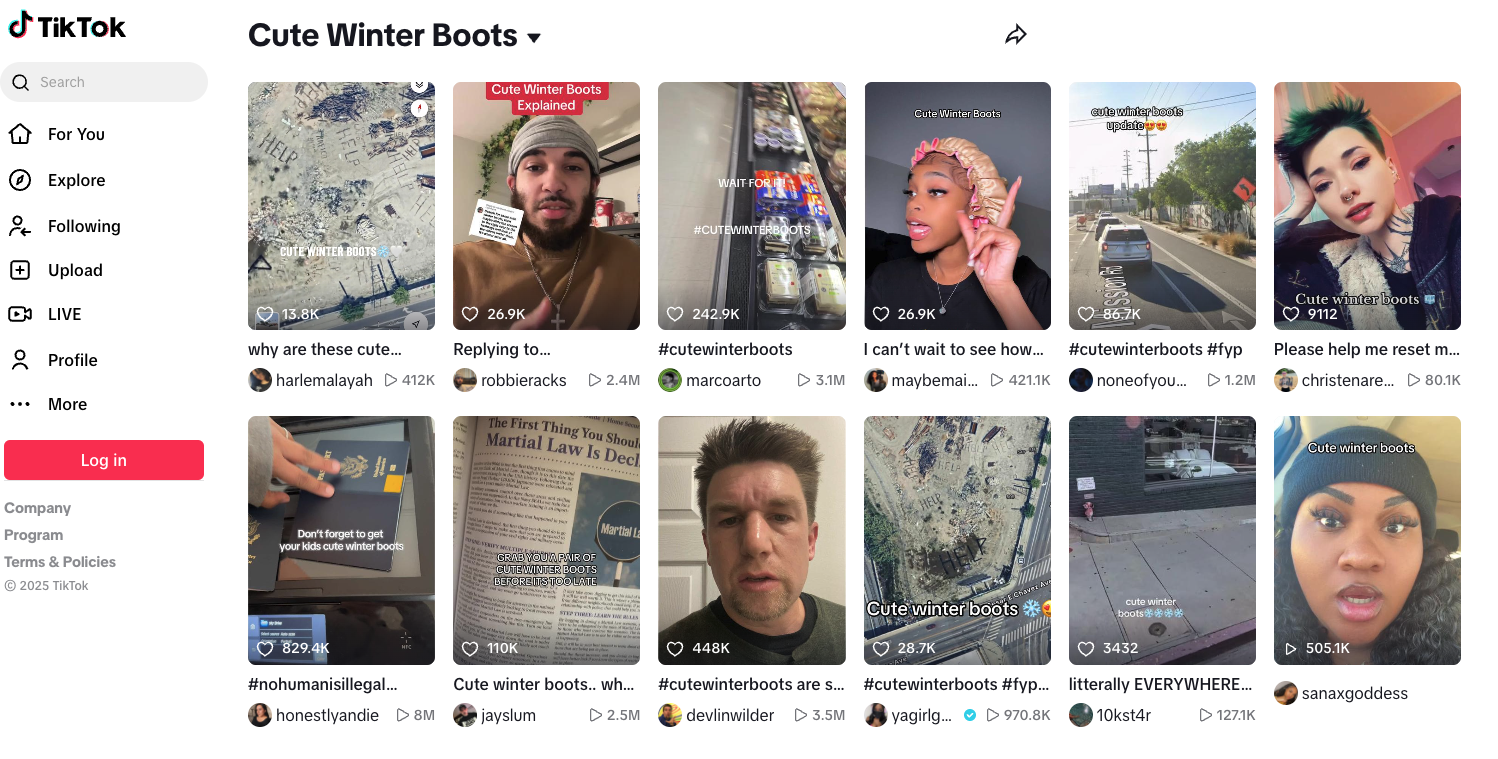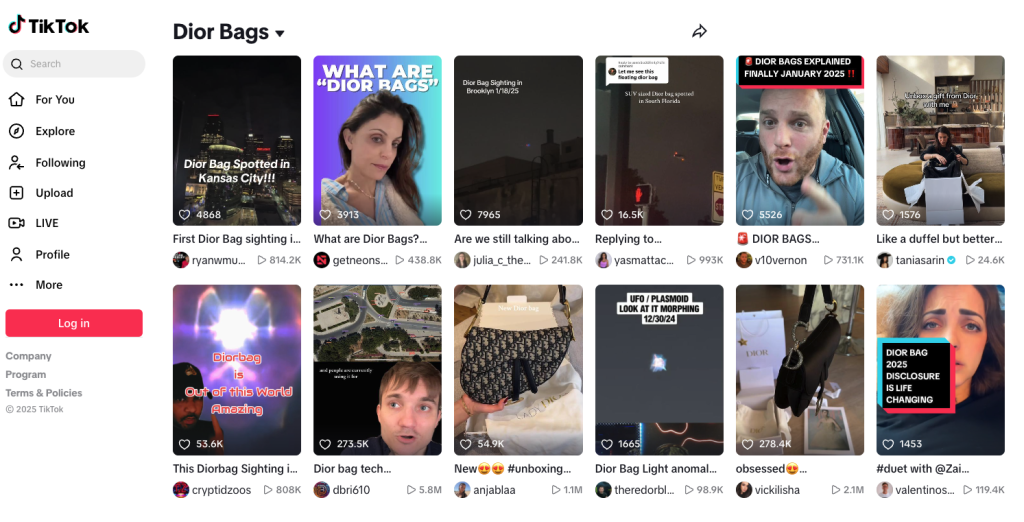Today’s internet is a whole new world, one tightly controlled by invisible algorithms that users may or may not appreciate. The way we talk to one another on social media reflects that. Algospeak—strategic wording to ensure that posts about controversial subjects don’t get users “shadow banned,” or restricted or blocked from a platform without their knowledge—is the language of the internet.
Internet slang has always been an aspect of online posting, but its evolution has included a more secretive function. Algospeak is being utilized to disguise controversial and political videos, allowing them to hide in plain sight behind code words that have nothing to do with the content of the actual posts.

The most recent example of this is “cute winter boots.” Users have been posting videos urging people to get themselves a pair of “cute winter boots,” but they don’t mean the newest pair of Uggs. Hidden behind those three words are videos about recent ICE sightings, conversations about new immigration policies, or information about upcoming protests. Some of the videos feature the content directly—such as a flyer for a protest—while others are more cryptic.
“The whole ‘cute winter boots’ thing came from the name ICE,” says TikTok user and San Diego native Michelle Rodriguez. “You know, don’t slip on ICE.” But according to Mia Farinacci, a user from Ohio who goes by the TikTok handle @miafarii, the reference to apparel serves a larger purpose.
@miafarii I mean who doesn’t love a good winter boot💁♀️we have a right to peacefully protest #cwb #cutewinterboots #winterboots #fypシ #politics #democrats #kamala #equalityforall #lgbtq
♬ original sound – miafarii
“It pushes it through the algorithm because fashion is such a huge section of TikTok,” Farinacci says. Her recent TikTok posts under “cute winter boots” have gone viral.
Though posting protest locations is one of the most popular uses of the hashtag, “I noticed in a lot of the comment sections in these videos that everyone was having trouble coordinating with each other,” Farinacci says. “I wanted to make some videos where people were able to find their states and talk with each other.” The comment section of her videos has since become a kind of forum where users discuss recent ICE sightings or protests.
San Diegans have caught on to the trend, too, using it to share flyers for upcoming protests throughout the county. Locals have turned to the comment section of these videos to connect and inform each other about where to be and when to be there.
Rodriguez recently used #cutewinterboots to post photos on her TikTok account, @mezcalmamiiiii, of a protest at the San Diego Convention Center in downtown. “It’s actually getting way more likes and comments on it than when I usually post without any hashtags,” Rodriguez says.

“Cute winter boots” is not the first code word of its kind. Last year, TikTok users began using the term “Dior bags” to reference a string of drone sightings across the United States in December of 2024. Like “cute winter boots,” the code word was coined with visibility in mind.
Terms like this are a more complex application of algospeak’s function as an anti-censorship tool. Users on TikTok and other social media platforms have learned which words, phrases, and topics get their posts deleted, so they’ve developed now-familiar workarounds: Code words like “unalived” (killed) or “seggsy “ (sexy) are just another way that users evade social media restrictions. In other cases, users will swap out characters to make censored terms less recognizable. In algospeak, words like “stripper” and “lesbian” become “$tripper” and “le$bean.”
@xxsar__maxx Comment what your favorite winter boots are 💗💗l#Inverted #winterboots #cutewinterboots #fyp
♬ original sound – Sara Margaret🍉
“If you say any controversial word on TikTok, they are going to delete it,” says Jezabel Valles, a TikTok user from San Diego who posts under the username @jazveronica. “We have to use these code words to trick it.”
PARTNER CONTENT
Though the coded language and adjusted terms may seem silly, they’re an undeniably effective way for TikTok users to dance around the algorithm and ensure that their videos stay put.
“We are finally learning how to bypass the algorithm and make our voices heard,” Rodriguez says.














